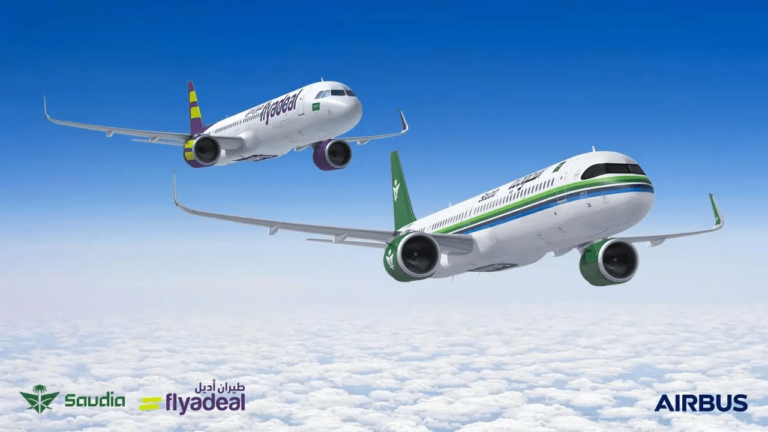Courtesy of Airbus
- Riyadh Air signed a deal for 60 Airbus A321neo jets on Wednesday.
- It was reportedly set to opt for Boeing 737 Max narrowbody jets after buying the 787 Dreamliner.
- The boost for Airbus comes at a testing time for Boeing.
Riyadh Air announced an order for 60 A321neo jets from Airbus on Wednesday.
The order from the airline, which is set to start flying next year, comes after months of speculation as to which planemaker the Saudis would choose for its narrowbody jets.
Last year, Riyadh Air went with Boeing for its widebody fleet, signing an order for up to 72 of its 787 Dreamliners.
In November last year reports suggested that Riyadh Air was set to place another big order with Boeing for 100 737 Max jets. However, the Dubai Air Show passed without such an announcement.
Boeing’s troubles worsened two months later when an Alaska Airlines 737 Max lost a door plug in midair. It sparked regulatory scrutiny over the planemaker’s quality-control processes, while customer frustrations led to the ousting of its CEO.
Pete Syme/Business Insider
Boeing’s 737 Max production has been limited since January’s incident, with its total commercial jet backlog at 5,400.
The Airbus backlog is even larger at around 8,000, mostly made up of jets from the A320 family. The planemaker and Riyadh Air did not provide an expected delivery date for the 60 A321neos.
Riyadh Air CEO Tony Douglas told Reuters in May that the narrowbody order had been delayed because he was concerned about negative media coverage that arose soon after November’s Dubai Air Show.
“The last thing I want to do is present my good news and have it in a context of things that are going on elsewhere, which are not quite as positive,” he said. “Be it Airbus can’t deliver on time [or] Boeing is having some technical problem.”
Wednesday’s order is a further boost for Boeing’s biggest rival and comes just hours before Airbus releases its third-quarter earnings.
Boeing recorded a loss of $6.1 billion in the last quarter, and is contending with a union strike now in its sixth week, planned layoffs, and further delays to its much-anticipated 777X jet.
